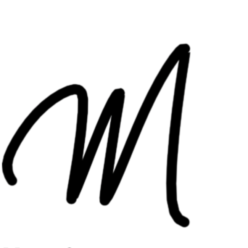I wrote this article in 2013 at the request of Parul Mittal for her site on education, Rivokids.
What makes Mathematics useful? It is the language of the universe, the grammar of science – all that stuff you’ve probably heard before. It’s also wildly practical when you’re trying to figure out how much to tip in a restaurant – or, if you own the restaurant, how much money you’re really making after you’ve paid your rent, your staff, and your taxes. This everyday, mundane kind of usefulness is why we first learn math in school – we need to be quantitatively competent in the world. And the other kind of usefulness — the fact that it provides the technical grounding for so many disciplines — is why you have to study quite a lot of math if you are going to be a scientist of any kind, or an economist, or an insurer, or a what-have-you.
If you are a mathematician, however, the truth is that this multi-faceted usefulness is not what draws you to your discipline. Usefulness is not the point of what you do – at least not if by “useful” you mean “useful in the real world”, whatever that might be. It doesn’t take an otherworldly kind of mind to see the fun and the appeal of purely abstract mathematics. Anyone can do it. Here, let me show you. Think of a number, any number. Now double it. Now double it again. And again. Double it again. Keep going. Double it, double it… keep going.
Now, I don’t know if you actually are doing these calculations, but that doesn’t matter, because my guess is that you are imagining doing them. You have no problem imagining the doubling, even without actually doing the calculations! And this is also true of those who didn’t even bother to pick a number in the first place – maybe because it’s too much work. So you just imagine that you’ve picked one, and go from there. This is completely abstract, and it’s a beautiful illustration of how naturally abstraction comes to us.
If you keep up this doubling, you get a series of larger and larger numbers, and there are some things you might start to think about. How big will the numbers get? Will you always eventually cross a million? A billion? If you picked an ordinary kind of positive number, say 1 or 5 or 10, then it’s not too hard to convince yourself that in fact you will – the doubling is explosive and dramatic, and you will cross any target that’s been set, however massive. (Don’t take my word for it; play around and see for yourself.) But instead of these normal numbers, what if you started with something really tiny, a number that was, in fact, a small fraction very, very close to zero? Could it be that if you start with something tiny enough, say a decimal point, followed by a looooonngggg string of 0’s (a billion 0’s, perhaps), followed by a 1 – then your repeated doubling will not get you into the realm of large numbers? With this many digits, a calculator won’t be much help, but that’s hardly a barrier to our thinking about it.
Or, taking the investigation in a different direction, suppose you stick with your good old familiar 1 or 5 or 10, but instead of doubling it – instead of increasing it by a full 100% every time – you increase it by a just a small fraction every time, say one hundredth of a percent. You still get a sequence of numbers, each larger than the rest, but instead of being double the last number, each item is only slightly larger than the last number. What happens then? Will you get past a million now, or even a hundred?
If you have some mathematical knowledge, you may already have the answers to these questions – but the point I am making is that you actually need very little prior knowledge to ask interesting questions – to start wondering. This wondering is the hallmark of mathematics. A five year old can do it. A five year old, in fact, does do it. So do we all when we are trying to work out a difficult abstract puzzle, just for the sake of it. And do you not feel alive, when you are wondering? When you figure something out, make a new connection, perhaps after quite a lot of struggle? I wonder why this happens… I wonder what would happen if we did this…. each of these questions is a call to action. All new and interesting research – not just in math, but in anything – comes out of some such call. If the things that capture you most are some aspect of the physical world, then you might be drawn to the physical sciences. If the objects of your wondering are abstract entities — numbers, perhaps, or surfaces, or shapes – and the beautiful structure that reveals itself through thought alone! – then you are a mathematician.
(If you’re still wondering and want to know the answers to the questions above, click here.)
